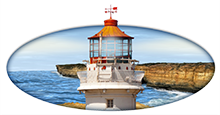As I predicted in an earlier post, Larry Ellison has told Reuters, “We are definitely not going to exit the hardware business. If a company designs both hardware and software, it can build much better systems than if they only design the software. That’s why Apple’s iPhone is so much better than Microsoft phones.”
I opined that Oracle will be working on very tight integration between the two companies and will begin to sell a juiced up Oracle Database Engine against Oracle running on any other platform.
Mr. Ellison has just confirmed that by jointly developing Oracle’s existing arsenal of software with Sun’s computers and SPARC chips, they can build machines designed for specific purposes that work better than ones pulled together from separate components. Ellison said he plans to boost investment in Sun’s SPARC microprocessors, which serve as the brains in its line of high-end Unix computers. The biggest buyers of these servers are large corporations and government agencies. He also said he intends to hold on to Sun’s data storage business and its tape backup unit, which compete with EMC Corp and IBM.
So just like Apple sells an entire ecosystem around the iPhone, Oracle wants to be selling a complete database ecosystem against their own product running on any other platform, most likely with pre-configured packages for specific verticals.
IBM heavily promotes DB2 as a competitor to Oracle while HP pushes Oracle on HP/UX as their premier database environment. Ellison knows that by integrating the database into the operating system and underlying hardware, he can build a system that wiil outperform the generic version of Oracle running on other hardware. I cannot believe that Larry is unaware of how the tight integration in the software/hardware stack of the HP NonStop SQL database (co-designed by Jim Gray) makes it the leader in online transaction processing.
Parts of NonStop SQL are built into the disk drivers (called the Disk Process) which means that database processing gains parallelism and speed with every disk volume added to the system. And it doesn’t stop there. Each disk process is actually a family of processes made up of a Head PIN and multiple Tail PINs which allows each volume to handle multiple requests in parallel.
Since NonStop SQL intelligently distributes queries to the disk processes connected to the volume holding the data it needs, and each disk process can handle multiple requests in parallel, there is less movement of bits between processes and CPUs resulting in lower latency and increased speed.
The NonStop Transaction Management Facility (TMF) also is built into the disk process along with support for the Remote Database Facility (RDF). TMF’s audit log allows NonStop SQL to maintain database consistency no matter what happens to the system, and with RDF replicating data to one or more backup sites, this includes protection from a catastrophic site failure. This tight integration allows NonStop SQL to support online transaction processing at the same time as batch queries and backups.
NonStop TMF knows the state of every database transaction on the system and this knowledge extends to database recovery. Backups can be taken without stopping the application because TMF can recreate a transactionally consistent version of an SQL database to any point in time, either on the system which was backed up or on another system for forensic analysis – again without stopping the application.
With NonStop RDF added to the mix, changes made to a NonStop SQL database can be streamed to a backup system for disaster recovery with no loss of speed to the application. With NonStop RDF/ZLT and a pair of StorageWorks SAN modules, even in-flight transactions (those completed and acknowledged on the primary system) will not be lost, even if they have not been transmitted to the backup system. Is this magic or what?
For now there is no other database which can compete with NonStop SQL, but I think that if Ellison has his way, he will attempt to replicate this architecture using the set of components that he now owns. But HP has a multi-year head start and can sell this capability today. That’s why Mark Hurd may want to think seriously about promoting the NonStop SQL database to their customers before Oracle waltzes in to lure them away with one-stop-shopping turnkey database engines.


